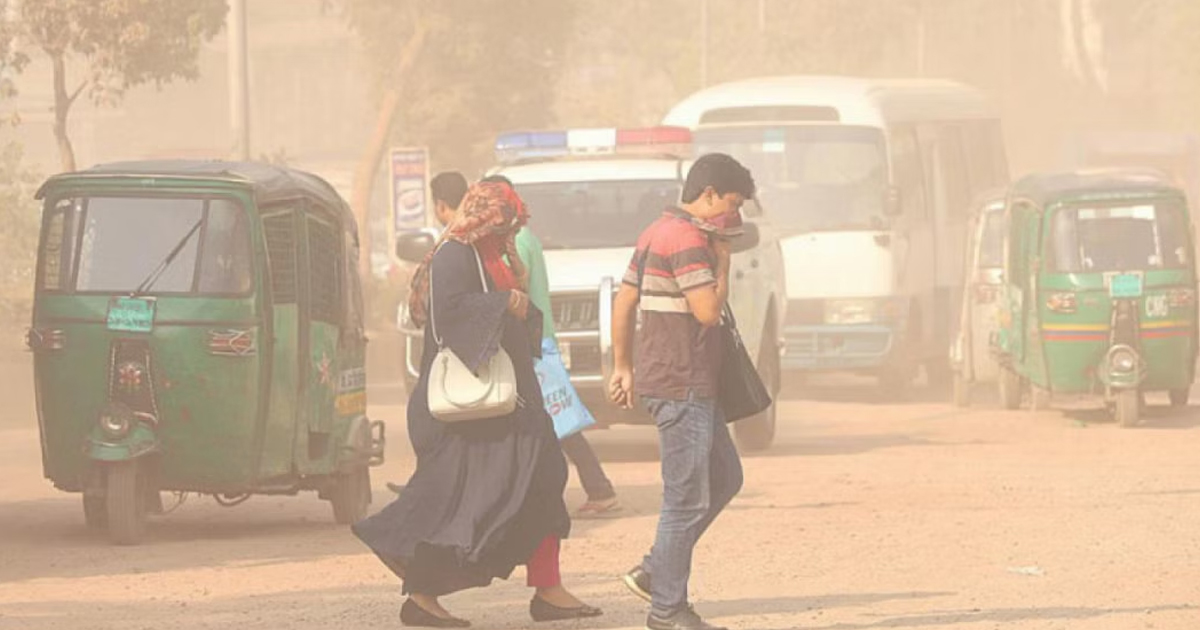
In a concerning development, Dhaka, the densely populated capital of Bangladesh, awoke to distressing air quality conditions this morning. The air quality in the city was officially classified as ‘unhealthy for sensitive groups,’ raising alarm among residents and environmental experts.
At precisely 8:56 am, the Air Quality Index (AQI) for Dhaka recorded a concerning score of 144. This score catapulted Dhaka to the 12th position on the global list of cities plagued by the worst air quality, as per data compiled by the AQI.
To put this in context, other cities facing severe air quality challenges include Lahore, Pakistan, leading the list with an alarming AQI score of 306, followed by India’s capital, Delhi, at 204, and China’s Chengdu at 180.
In the realm of air quality, the AQI serves as a vital yardstick. When the AQI value for particle pollution falls between 101 and 150, the air quality is considered ‘unhealthy for sensitive groups.’ The scale progresses, with scores of 150-200 deemed ‘unhealthy,’ 201-300 classified as ‘very unhealthy,’ and any reading exceeding 301 is labeled ‘hazardous,’ indicating serious health risks for residents.
The AQI in Bangladesh is determined by evaluating five key criteria pollutants: particulate matter (PM10 and PM2.5), nitrogen dioxide (NO2), carbon monoxide (CO), sulfur dioxide (SO2), and ozone.
Dhaka, grappling with persistent air pollution issues, experiences a cyclical pattern. Air quality tends to deteriorate during the winter months and sees improvement during the monsoon season. However, this latest declaration of ‘unhealthy for sensitive groups’ status is a stark reminder of the ongoing battle the city faces in mitigating air pollution.
Air pollution, a global public health concern, consistently ranks among the top risk factors for death and disability worldwide. According to the World Health Organization (WHO), an estimated seven million people succumb to the dire consequences of air pollution each year. These fatalities are primarily attributed to increased mortality rates from stroke, heart disease, chronic obstructive pulmonary disease, lung cancer, and acute respiratory infections.
The declaration of ‘unhealthy for sensitive groups’ in Dhaka serves as a sobering call to action for local authorities and citizens alike. Urgent steps are necessary to address this pressing issue, improve air quality, and protect the health and well-being of Dhaka’s residents.



